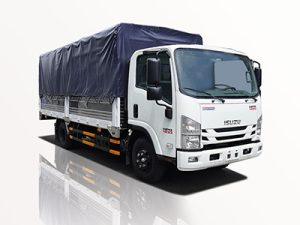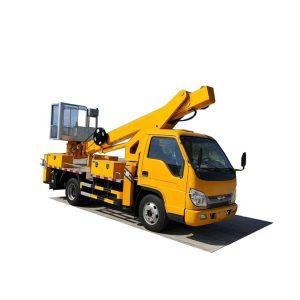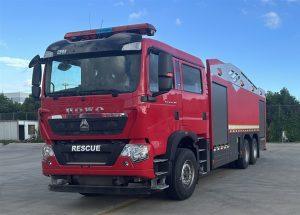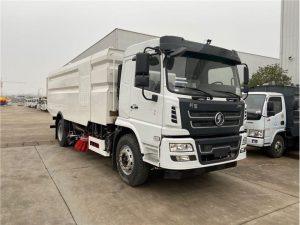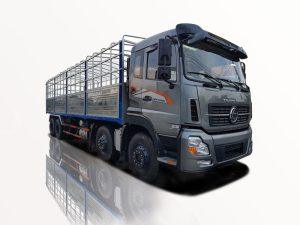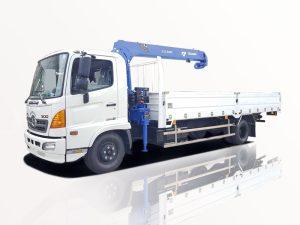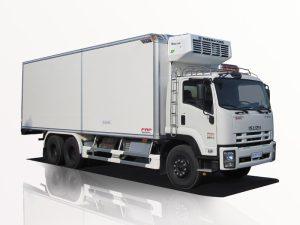Monday to Saturday - 8:00 -17:30
Understanding Garbage Truck Garbage: All You Need to Know
Introduction
Garbage trucks are essential vehicles in modern waste management systems. They play a critical role in maintaining cleanliness in our cities and towns by collecting garbage from residential and commercial areas. This article provides an in-depth exploration of garbage truck garbage, including its types, the garbage collection process, innovations, and the importance of proper waste management. With practical tips and examples, readers will gain a thorough understanding of the role of garbage trucks in our communities.
The Role of Garbage Trucks in Waste Management
Garbage trucks are specialized vehicles designed to transport waste from its point of collection to disposal sites such as landfills, incinerators, and recycling centers. Their primary purpose is to ensure the efficient and safe removal of garbage to maintain public health and environment quality.
Types of Garbage Trucks
- Rear Loader Trucks: These are the most common garbage trucks, featuring a compaction system that loads garbage from the back. They are user-friendly and efficient for residential areas.
- Side Loader Trucks: These trucks use an automated or manual loading system from the side, making them suitable for narrow streets while reducing the need for drivers to leave their seats.
- Front Loader Trucks: These trucks are designed for commercial waste collection, featuring large bins that are lifted and emptied from the front.
- Roll-off Trucks: Used mainly for construction waste, these trucks transport large containers that can be dropped off and picked up at specific sites.
Importance of Garbage Collection
Effective garbage collection is vital for numerous reasons, including:
- Public Health: Regular collection of garbage prevents the spread of diseases caused by decomposing waste.
- Environmental Protection: Proper waste management reduces pollution and conserves natural resources.
- Aesthetic Value: Well-maintained areas enhance the beauty of neighborhoods, making them more appealing for residents and tourists.
How Garbage Trucks Work
The operation of a garbage truck involves several stages, from collection to disposal. Understanding this process can provide insights into the importance of the roles these vehicles play.
The Collection Process
Garbage collection usually follows a predetermined schedule. Below are the steps involved:
- Route Planning: Garbage truck routes are carefully planned to maximize efficiency while minimizing fuel consumption and travel time.
- Collection: Garbage is collected from homes and businesses. Each type of truck has its method of loading waste, whether by hand, mechanically, or automatically.
- Compaction: As garbage is loaded, it is compacted to create more space within the truck, enabling it to carry larger loads.
- Transport: Once full, the truck transports the garbage to a landfill, recycling center, or incineration facility.
Types of Garbage Collected
Garbage trucks collect various types of waste. Understanding these categories is crucial for effective waste management.
| Type of Waste | Description |
|---|---|
| Municipal Solid Waste (MSW) | Household waste, including food scraps, packaging, and yard waste. |
| Recyclable Materials | Items such as paper, glass, metals, and plastic, which can be processed and reused. |
| Hazardous Waste | Waste that poses a risk to human health or the environment, including chemicals and batteries. |
| Construction and Demolition Debris | Waste generated from construction sites, such as wood, drywall, and concrete. |
Innovations in Garbage Collection
With technology advancing, garbage trucks are becoming more efficient and effective through new innovations.
Automated Garbage Collection
Many cities are adopting automated collection systems where garbage bins are equipped with RFID tags. This allows garbage trucks to recognize and collect bins automatically, reducing labor costs and enhancing efficiency.
Smart Garbage Trucks
Garbage trucks are now being equipped with sensors and GPS technology to monitor their loads and optimize their routes in real-time. This innovation reduces fuel consumption and improves service efficiency.
Electric Garbage Trucks
As concerns about climate change grow, many municipalities are investing in electric garbage trucks to reduce carbon emissions and noise pollution. These vehicles not only contribute to sustainability but also provide quieter operations in residential areas.
The Impact of Improper Waste Management
Improper waste management can lead to severe environmental and public health issues.
Environmental Consequences
When garbage is not collected properly, it can pollute waterways, threaten wildlife, and contribute to climate change through greenhouse gas emissions.
Public Health Risks
Accumulated garbage provides breeding grounds for pests, which can spread diseases to humans and wildlife. Additionally, hazardous waste can leak into the soil and water systems, posing serious health risks.
Best Practices for Waste Management
Implementing best practices encourages responsible garbage disposal and reduces the volume of waste generated.
Reduce, Reuse, Recycle
Encouraging communities to embrace the “3 Rs” is essential in minimizing waste. Educating the public about recycling and reuse can significantly reduce the amount of waste collected by garbage trucks.
Community Engagement
Involving the community in local waste management initiatives—such as clean-up days and recycling drives—can create a culture of responsibility towards waste management.
Choosing a Garbage Collection Service
When selecting a garbage collection service for residential or commercial purposes, consider the following factors:
Service Reliability
Research the service’s reputation for punctuality and dependability. Reading customer reviews can provide insight into their performance.
Cost-Effectiveness
Compare prices and services offered by different providers. Ensure that the service fits within your budget while meeting your waste disposal needs.
Environmentally-Friendly Practices
Select a service that emphasizes eco-friendly practices, such as proper recycling and responsible waste disposal, contributing positively to the community and environment.
Future of Garbage Trucks
As cities expand and populations grow, garbage trucks will continue to evolve. Future trends may include enhanced automation, further integration of technology, and sustainable practices aimed at reducing waste.
FAQ Section
1. How often do garbage trucks collect garbage?
Collection frequency varies by location, but most residential areas have pickups once or twice a week, while commercial areas may have more regular collections.
2. What should I do if my garbage was not collected?
Contact your local waste management service to report an issue. They may have a procedure for missed collections or can provide you with information about rescheduling.
3. Can I put electronic waste in my garbage bin?
No, electronic waste contains hazardous materials and should be disposed of through designated e-waste recycling programs. Check local regulations for proper disposal options.
4. What items are typically not accepted for collection?
Most garbage trucks do not accept hazardous materials (paints, chemicals), large appliances, batteries, or construction debris. Always check with your local waste management service for specific guidelines.
5. Are there any alternatives to landfills for garbage disposal?
Yes, alternatives include recycling facilities, waste-to-energy plants that incinerate waste to generate energy, and composting sites for organic waste.
6. How can I reduce the amount of garbage I generate?
Practice the 3 Rs—reduce, reuse, recycle. Make conscious decisions when purchasing items to minimize packaging, and consider composting organic waste to reduce landfill contributions.


